NIAID
-
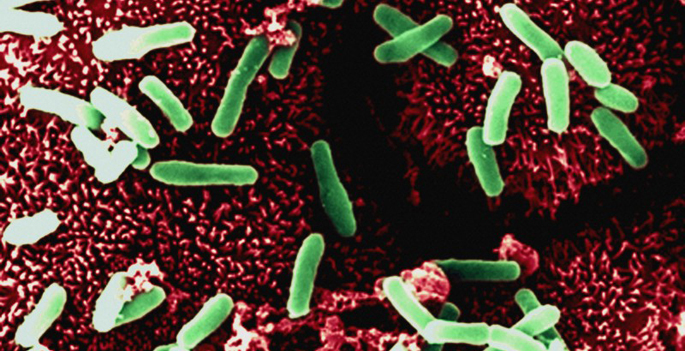
Defusing ‘C. diff’ infection
Clostridium difficile on the intestinal lining. (Wellcome Images) Clostridium difficile (“C. diff”) infection is a leading cause of hospital-associated diarrhea, and the frequency and severity of infections are on the rise. D. Borden Lacy, Ph.D., associate professor of Pathology, Microbiology and Immunology, and colleagues recently demonstrated that the C. Read MoreNov 8, 2013
-

Preserving antibiotic arsenal for TB
Clinicians should be cautious about prescribing newer fluoroquinolone antibiotics to patients with TB risk factors; doing so may jeopardize the use of these agents against TB. Read MoreOct 30, 2013
-
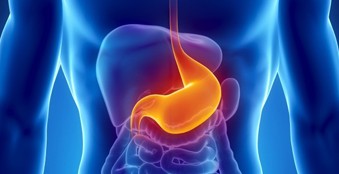
Cell changes en route to stomach cancer
Molecular characterization of pre-cancerous changes in cells lining the stomach could point to lesions with a greater risk of progression to cancer. Read MoreSep 26, 2013
-
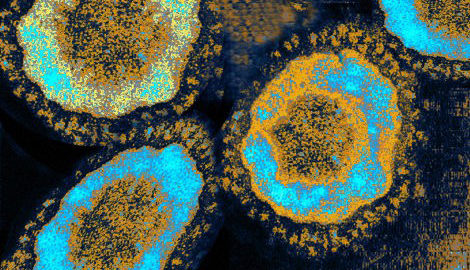
‘Proofreader’ key to coronavirus growth
A coronavirus protein is required for replication of the viral genome and may be a good treatment target for SARS and other diseases caused by coronaviruses. Read MoreSep 12, 2013
-

Probing intestinal immune cell roles
A new in vitro system will allow investigators to explore how immune system T cells develop specialized functions. Read MoreAug 28, 2013
-
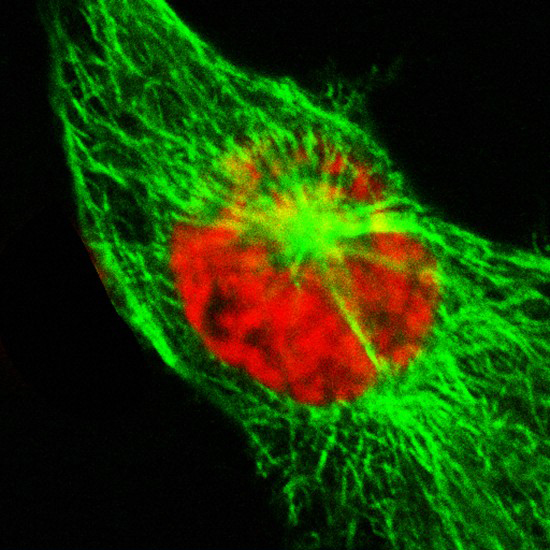
Nuclear shield against cell death
The protein SARM appears to protect cells from inflammation-driven death by stabilizing the nuclear laminin scaffold. Read MoreAug 8, 2013
-

Defining patient retention
Vanderbilt researchers propose guidelines for defining patient retention in clinical studies – an important parameter that affects study conclusions and program evaluations. Read MoreJul 15, 2013
-
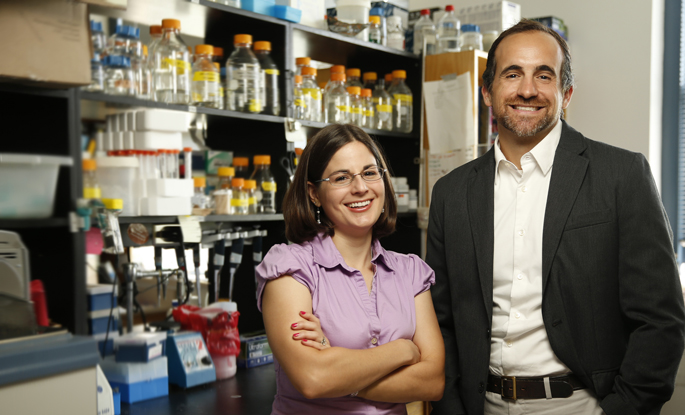
Studies outline new model for staph bone infections
Osteomyelitis, a debilitating bone infection most frequently caused by Staphylococcus aureus (“staph”) bacteria, is particularly challenging to treat. Read MoreJun 20, 2013
-

Salt revs stomach bug’s cancer impact
A high-salt diet worsens the carcinogenic effects of Helicobacter pylori, a bacterium that colonizes the stomachs of half of the world’s population. Read MoreMay 13, 2013
-

Taking the ‘noise’ out of protein data
Vanderbilt researchers have developed a novel algorithm to improve results from proteomic studies. Read MoreMay 1, 2013
-

Factor reduces virus-related asthma attacks
An immune system factor associated with severe asthma may actually reduce asthma attacks induced by viral infections. Read MoreApr 26, 2013
-
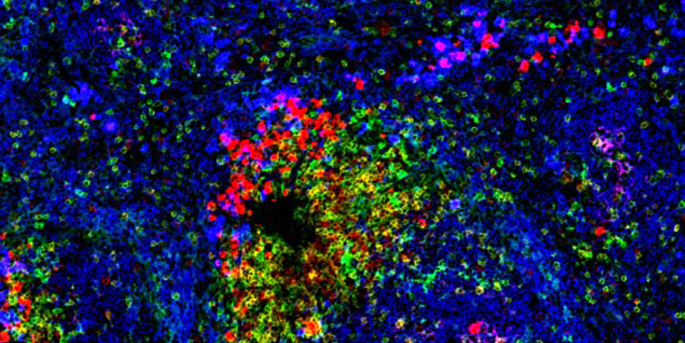
“Silent” B cells trigger autoimmunity
Immune cells that recognize self antigens (e.g. insulin), but are functionally silent, can trigger autoimmune diseases such as diabetes. Read MoreApr 3, 2013
-

Bacterial resistance breaks bridges
Understanding how bacteria become resistant to quinolone antibiotics could guide strategies for developing new antibacterial drugs. Read MoreMar 14, 2013
-
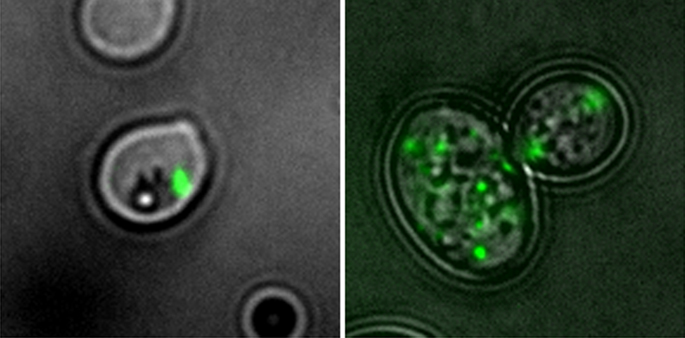
Starting up protein synthesis, in yeast
Researchers have found an unusual interaction between a factor that “turns on” protein synthesis and one that produces fatty acids. Read MoreFeb 28, 2013
-

Antibacterial protein’s molecular workings revealed
Vanderbilt investigators report new insights to the workings of calprotectin, an immune system protein that “starves” bacterial pathogens of the metal nutrients they require. Read MoreFeb 21, 2013
-
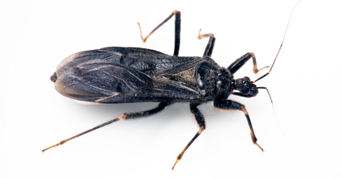
Cure in sight for kissing bug’s bite
It’s possible to cure Chagas disease – a deadly tropical infection transmitted by “kissing bugs” – in a mouse model. Read MoreFeb 15, 2013
-
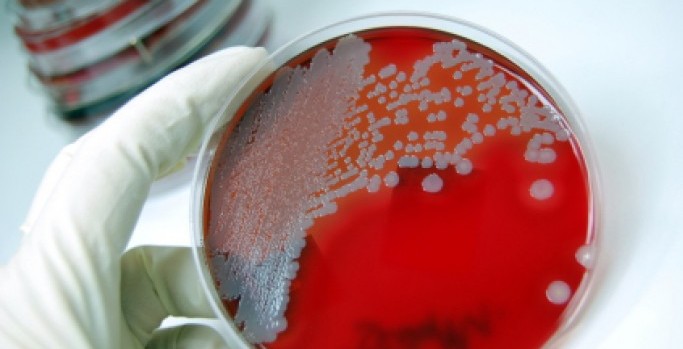
Zinc: a new antibiotic target?
It may be possible to fight hospital-acquired pathogens like Acinetobacter baumannii by targeting the bacterium’s need for the nutrient metal zinc. Read MoreJan 17, 2013
-

Bacterial signals in sarcoidosis
Study adds evidence for infectious agents’ role in sarcoidosis, an inflammatory condition that can lead to respiratory failure and death. Read MoreNov 6, 2012
-
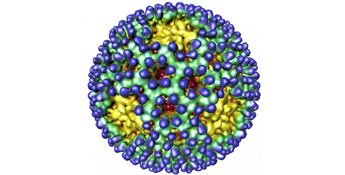
Protein’s length, flexibility key to infection
The structural architecture of the reovirus attachment protein is required for efficient reovirus infection of host cells. Read MoreOct 31, 2012
-
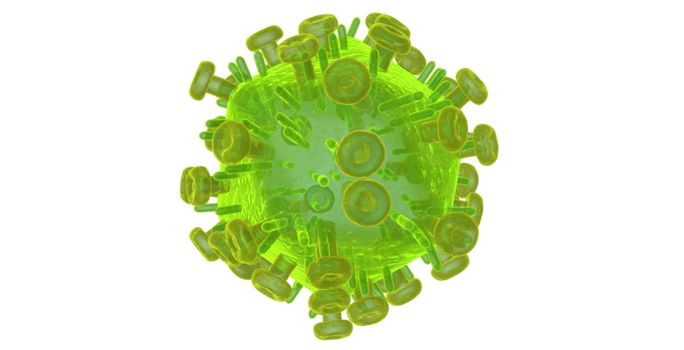
Host proteins can control HIV infection
The protein APOBEC3G contributes to spontaneous control of HIV-1 in vivo and may provide therapeutic benefits. Read MoreOct 5, 2012